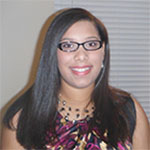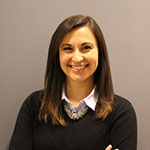Our Story
Science is often dismissed or poorly covered in the news media. Three conditions are the main contributors of substandard science coverage in the news:
 After years of cuts, nearly all general news media outlets do not have reporters assigned to the science beat; instead they are typically general assignment reporters who come to science stories with little expertise or experience. As the Pew Research Center’s Project for Excellence in Journalism concluded in their The State of the News Media 2013 report, “This adds up to a news industry that is more undermanned and unprepared to uncover stories, dig deep into emerging ones or to question information put into its hands.”
After years of cuts, nearly all general news media outlets do not have reporters assigned to the science beat; instead they are typically general assignment reporters who come to science stories with little expertise or experience. As the Pew Research Center’s Project for Excellence in Journalism concluded in their The State of the News Media 2013 report, “This adds up to a news industry that is more undermanned and unprepared to uncover stories, dig deep into emerging ones or to question information put into its hands.”- Science is often covered poorly because many reporters and editors are under the mistaken presumption that to be fair, science reporting needs to include “both sides of the story,” even if the clear preponderance of evidence is on the side of sound scientific research. All sides must be considered with a sharp focus on evidence.
- As news media sources, scientists are not trained as spokespeople, and may be uncomfortable in the role of linking scientific research to important questions of public. Conversely, industries that might benefit by obscuring or discrediting the work of science (e.g., historically, the lead, tobacco, and fossil fuel industries) are flush with spokespeople and representatives who are keen to exploit the lack of experience in the news corps and their faulty inclination to present “both sides of the story” as equal.
Journalism needs to not just tell us the arguments of various parties to debates, but needs to do the harder work of verifying those arguments. Citizens often become disinterested in issues because they are unable to sort through and judge the competing messages. To address this problem, the Science in the Media web site is being developed to empower journalists (and, in a world of social media, the public too) with the information to tell better stories and do the hard work of verification. Our site continues to grow, and is tailored specifically to issues of science and life in Iowa. We want to give reporters the tools they need to report wisely and courageously on the issues.
Our grant funding for Science in the Media ended in 2019, but we will, from time to time, update news on the issues we are tracking.
Our Contributors
 Chris is Professor of Communication Studies at the University of Northern Iowa and the director of the Science in the Media project. His work has been published in Journalism Studies, Journal of Communication Inquiry, Communication Research, Labor Research Journal, Journal of Communication, Perspectives on Politics, Editor & Publisher, Z magazine, the Huffington Post, and in several edited books. With Richard Campbell and Bettina Fabos, he is co-author of Media and Culture: Mass Communication in a Digital Age (Bedford/St. Martin’s), now in its 12th edition, and Media Essentials: A Brief Introduction (Bedford/St. Martin’s), now in its 5th edition. He is also author of No Longer Newsworthy: How the Mainstream Media Abandoned the Working Class (Cornell University Press, 2019) and Framed! Labor and the Corporate Media (Cornell University Press, 2004). Martin previously taught at Miami University (Ohio), and was a visiting professor at Universitat Klagenfurt (Klagenfurt University) in Austria. He is a recipient of the State of Iowa’s Board of Regents Award for Faculty Excellence (2004), the College of Humanities and Fine Arts Faculty Excellence Award (2010), and the Veridian Community Engagement Award (2011). Martin holds a Ph.D. from the University of Michigan, an MA from Emerson College, and a BA from Capital University.
Chris is Professor of Communication Studies at the University of Northern Iowa and the director of the Science in the Media project. His work has been published in Journalism Studies, Journal of Communication Inquiry, Communication Research, Labor Research Journal, Journal of Communication, Perspectives on Politics, Editor & Publisher, Z magazine, the Huffington Post, and in several edited books. With Richard Campbell and Bettina Fabos, he is co-author of Media and Culture: Mass Communication in a Digital Age (Bedford/St. Martin’s), now in its 12th edition, and Media Essentials: A Brief Introduction (Bedford/St. Martin’s), now in its 5th edition. He is also author of No Longer Newsworthy: How the Mainstream Media Abandoned the Working Class (Cornell University Press, 2019) and Framed! Labor and the Corporate Media (Cornell University Press, 2004). Martin previously taught at Miami University (Ohio), and was a visiting professor at Universitat Klagenfurt (Klagenfurt University) in Austria. He is a recipient of the State of Iowa’s Board of Regents Award for Faculty Excellence (2004), the College of Humanities and Fine Arts Faculty Excellence Award (2010), and the Veridian Community Engagement Award (2011). Martin holds a Ph.D. from the University of Michigan, an MA from Emerson College, and a BA from Capital University.
Cecilia Cerja
 Cecilia Cerja is now a Ph.D. Candidate in Rhetoric at the University of Georgia. She received her MA in General Communication at the University of Northern Iowa. She attended James Madison University, where she graduated with a B.A. in International Affairs with minors in Communication Studies and Latin and Caribbean Studies. Cecelia worked on the project Fall 2018-Spring 2019.
Cecilia Cerja is now a Ph.D. Candidate in Rhetoric at the University of Georgia. She received her MA in General Communication at the University of Northern Iowa. She attended James Madison University, where she graduated with a B.A. in International Affairs with minors in Communication Studies and Latin and Caribbean Studies. Cecelia worked on the project Fall 2018-Spring 2019.
Christine Reis
 Christine Reis was a graduate student at the University of Northern Iowa with a focus on Organizational Communication. She received her undergraduate degree in both Interpersonal and Organizational Leadership Communication with a minor in Psychology from Illinois State University. Christine worked on the project in Fall 2018.
Christine Reis was a graduate student at the University of Northern Iowa with a focus on Organizational Communication. She received her undergraduate degree in both Interpersonal and Organizational Leadership Communication with a minor in Psychology from Illinois State University. Christine worked on the project in Fall 2018.
Abbie Shew
 Abbie worked with Science in the Media from 2016-2018 as a graduate student in Communication Studies at the University of Northern Iowa. Her interests are in science communication, particularly science rhetoric. After graduating with her MA in 2018, she began her Ph.D. program in Communication Studies (studying science rhetoric) at the University of Washington.
Abbie worked with Science in the Media from 2016-2018 as a graduate student in Communication Studies at the University of Northern Iowa. Her interests are in science communication, particularly science rhetoric. After graduating with her MA in 2018, she began her Ph.D. program in Communication Studies (studying science rhetoric) at the University of Washington.
Science in the Media is a nonprofit, nonpartisan project housed at the University of Northern Iowa and supported by the Roy J. Carver Charitable Trust.
Science-Related Resources/Reporters/Blogs to Follow
- Iowa Center for Public Affairs Journalism
- UNI Center for Energy & Environmental Education
- Journalist’s Resource, Shorenstein Center of Media, Politics, and Public Policy (Environment section)
- Donnelle Eller, Des Moines Register agriculture, environment, and energy reporter
- Sandra Steingraber, ecologist and author
- Yale Program on Climate Change Communication
- Environmental Law and Policy Center
- ProPublica
- Grist
- Inside Climate News
- The Food and Environment Reporting Network
- Pesticide Action Network
- Environmental Working Group
- Undark
- Sciworthy
- InsideScience
- Science News
- Science magazine
